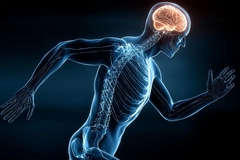Activ’Inside Reveal Beneficial Effects of Berry Polyphenols on Cognitive Impairment

06 Apr 2016 --- Activ’Inside have announced the publication of two new scientific studies, including one review, focusing on the beneficial effects of berry polyphenols on learning and memory impairments associated with age-related cognitive decline.
Spatial learning and memory deficits associated with impairments in the hippocampus – a key region of cognitive functions – are commonly observed during aging.
The beneficial role of dietary polyphenols has been suggested as potential supplements to prevent memory decline: “Polyphenols from grapes have been shown to restore learning and memory in aged-animals. This effect has been linked to the improvement of synaptic plasticity pathway,” Dr Julien Bensalem, neuroscientist at Activ’Inside, told NutritionInsight.
Dr Bensalem and colleagues published a new article in Frontiers in Behavioral Neuroscience evaluating the role of an eight-week polyphenol-enriched diet, containing a polyphenol-rich extract from grape and blueberry (PEGB, which has high contents of flavonoids, stilbenes and phenolic acid), on spatial learning and memory deficits in middle-aged mice, in the Morris water maze task.
The polyphenol supplementation successfully reversed the learning and memory deficits by promoting the occurrence of spatial strategies and the expression of neurobiological factors involved in brain plasticity.
The study concludes that supplementation with polyphenols could be an efficient nutritional way to prevent age-induced cognitive decline.
In addition, Dr. Bensalem et al. present that polyphenols from berries are essential micronutrients particularly studied for improving cognitive functions.
The paper, published in Nutrition and Aging, highlights the cognitive health impact of major polyphenolic classes found in berries such as flavonols, anthocyanins and stilbenes through evidences demonstrated in animals and humans.
The review discusses the potential benefits of berry polyphenols on memory impairment and neurodegenerative diseases. It also focuses on the bioavailability data suggesting that most berry polyphenols or their metabolites can access the brain in sufficient concentrations.
Collectively, the data accumulated so far suggest that dietary polyphenols can modulate brain health and function, and strengthen the importance of fruit consumption for a healthy brain aging and the prevention of age-related diseases.
However, further pre-clinical work is needed to determine the most neuroactive nutraceutical formulations, whether through the diet or supplement, to subsequently design and perform informative clinical trials.
Both articles result from an international collaboration between academic and industrial partners brought together in the Neurophenols Consortium. This nutrition and memory research program is based on four years of research necessary to develop, within a pharmaceutical approach, an innovative solution for memory supplements.
ACTIV’INSIDE specializes in the development and commercialization of innovative botanical active products, with key factors of differentiation on the nutraceutical market: “We aim to give our customers a market answer and tools for communication to the final consumer.”
by Kerina Tull











